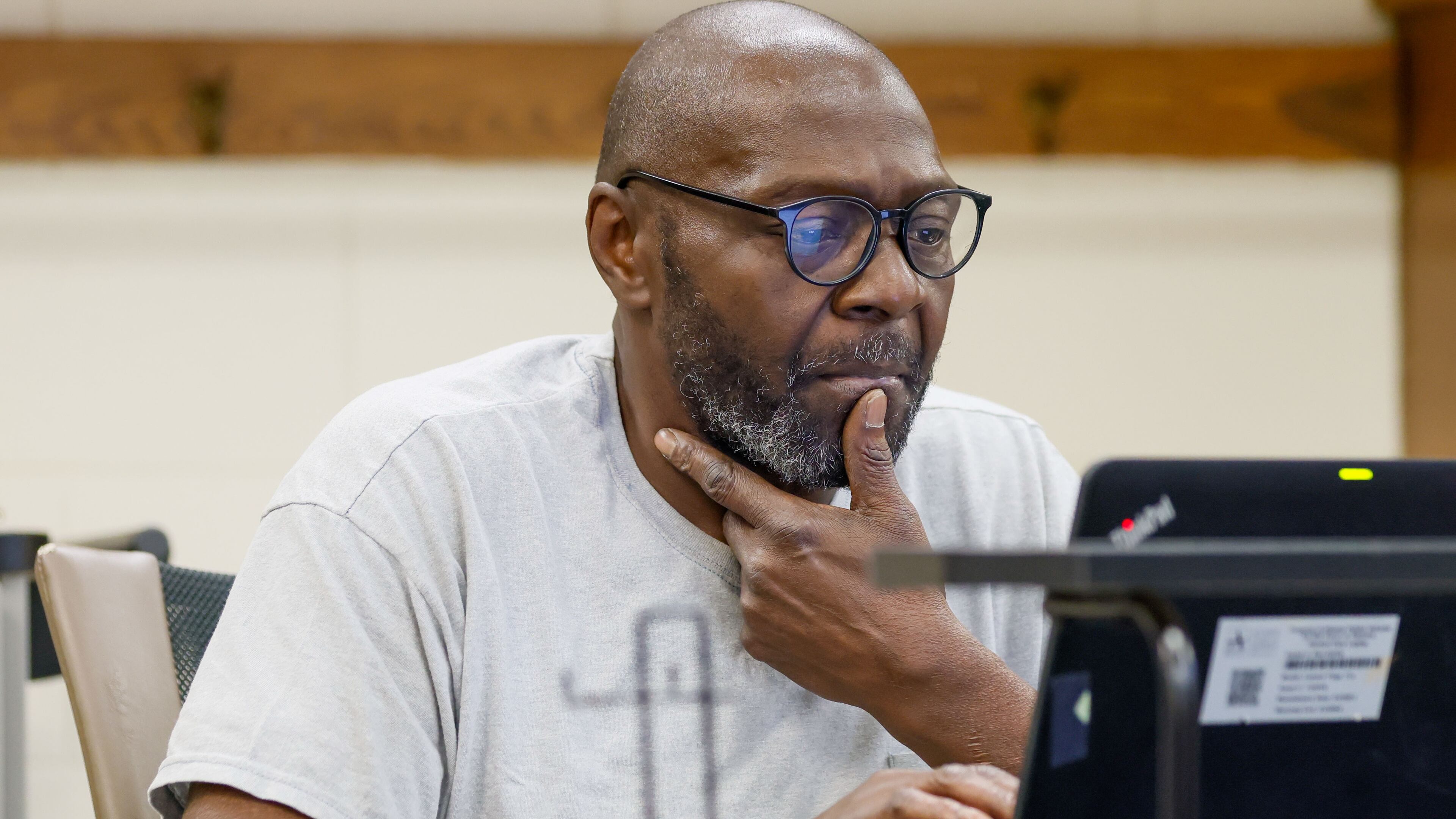Atlanta Public Schools turns lens to supporting adult learners

James Mullins didn’t like the grades his fourth grade daughter Che was bringing home last year.
“I was looking at (her) report card and 70 to 75 don’t make it with me,” he said.
The 62-year-old, who dropped out of school in the eighth grade, knew he couldn’t just demand Che perform better. He wanted to practice what he preached. So, he enrolled in classes at Atlanta Public Schools Adult Education Center to work on passing the General Educational Development (GED) test.
“I’m just trying to be a role model to her because … if I can get out there and get my high school diploma, she’s going to graduate from college.”
Mullins is one of the estimated 750,000 working-aged adults in Georgia who lack a high school credential. Atlanta Public Schools estimates more than half of them are in metro Atlanta. Knowing that, APS is pushing to get more students like Mullins to enroll in the center’s courses, which in addition to GED prep, include basic literacy classes, English as a Second Language (ESL) courses and job training. The school district is hoping to increase enrollment in the program from about 422 participants to 1,000.
The initiative is funded through a federal grant and coordinated through a partnership with the Technical College System of Georgia, which offers similar programs through the Clayton, Cobb and DeKalb county school districts. Most classes meet six hours a week, and there are flexible options if students can’t physically make it to class.
“Adult education is a truly important issue,” said APS interim Superintendent Danielle Battle on a recent visit to the district’s center in southeast Atlanta. “(If we meet parents’ needs) as well as the needs of our students, our families have a better chance of getting out of poverty.”
That’s because having a high school diploma or GED can make a difference in earnings. Monique Brown, the program administrator for Atlanta’s center, said adults who didn’t finish high school can still increase their salaries by earning credentials in customer service, logistics or construction through the center.

“There are a lot of hidden jewels in adult education,” Brown said of the job training and certificate opportunities.
For Mullins, finding employment has been difficult because he deals with chronic back pain. Now in recovery from drug and alcohol addiction, he would like to eventually counsel people who also struggle with addiction. For now, though, he’s busy keeping up with Che. He says they compete with each other to see who can rack up more perfect scores.
“Whenever one of us makes 100 on anything ... I put (my paper) up on the refrigerator,” Mullins said. “She says, ‘Oh, no, you didn’t.’ I said, ‘Yes, I did.’ Then a few minutes later, I come back in here, she got something on the refrigerator.”
By going back to school, Mullins is taking steps experts say can ensure Che’s success.
“We know that the No. 1 predictor of how well a child is going to do in school is the parents’ literacy level and their educational level,” said Daphne Greenberg, director of the Adult Literacy Research Center at Georgia State University.
Currently in Georgia, there’s a heavy focus on literacy in K-12 public schools. State law now requires them to adopt reading strategies that align with “the science of reading,” a body of research focused on teaching young children to read phonetically. Greenberg said for the approach to be successful, parents need to be part of the equation.
“Only tackling half of the issue is not going to get us ... as far as we can go,” she said.

For some parents, however, seeking help can be embarrassing.
“There’s a significant stigma attached with (saying) you’re not a strong reader or even saying you dropped out of high school,” said Cayanna Good, assistant commissioner for the TCSG’s Office of Adult Education.
Good said all students in the adult education program are tested initially to see what kind of courses they need. Some may want to earn a GED, but need basic instruction first. She said more than 90% of the program’s participants initially read below a ninth grade level.
“We can’t turn around (in those cases) and say, ‘OK, we’re going to test you on the GED next week,’ but we tell them … ‘We’re going to work really, really closely (with you) so that you’re able to meet this goal,’” she said.

The program measures student progress in different ways — through credentials earned, High School Equivalency diplomas issued, and test scores, for example. Good said Georgia’s program has been successful, ranking in the top quintile of states on performance metrics like those.
Mullins hopes to finish his GED next year. Since he returned to school, he said the lowest grade Che has brought home is an 85.
“I believe my child will be ready for anything life has to throw at her,” he said.
For more information on adult literacy, contact:
Atlanta Public Schools: 404-802-3560, adulthelp@apsk12.org
Cobb County Schools: kim.kranzlein@cobbk12.org
Clayton County Schools: 770-515-7610
DeKalb County Schools: 678-538-5246, Adult_Education@dekalbschoolsga.org



